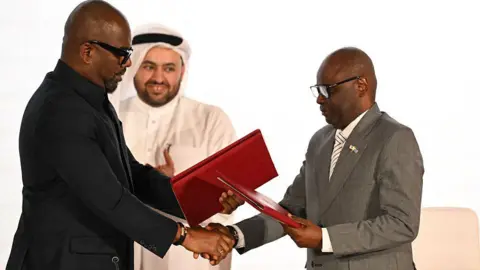South African Olympic champion Caster Semenya has achieved a significant legal victory at the European Court of Human Rights (ECHR), which ruled that the Swiss Federal Supreme Court violated her right to a fair hearing in a 2020 decision that upheld controversial World Athletics regulations. These regulations, introduced in 2019, effectively barred Semenya and other athletes with differences of sexual development (DSD) from competing in certain track events unless they reduced their natural testosterone levels.
The 34-year-old double 800m Olympic gold medallist has long contested the rules, arguing they are discriminatory and infringe upon the rights of athletes born with DSD. Although the ECHR’s Grand Chamber decision does not directly overturn the testosterone regulations or compel World Athletics to change them, it marks a powerful condemnation of Switzerland’s legal process and represents a partial but symbolic victory for Semenya in her prolonged battle for dignity, inclusion, and equality in global sport.
The court found that Switzerland failed to protect Semenya’s right to a fair trial under Article 6 of the European Convention on Human Rights. Judges stated the Swiss court’s review lacked the “particular rigour” required in such a sensitive case, describing it as having “fallen short.” However, the ECHR dismissed additional complaints by Semenya under Articles 8, 13, and 14 (related to privacy, effective remedy, and non-discrimination), saying they did not fall within Switzerland’s jurisdiction.
While this ruling does not immediately alter the existing World Athletics testosterone policy—which in 2023 was extended to cover all female track and field events—it strengthens legal and moral arguments in favour of athlete rights and could influence future proceedings or reforms. Semenya’s legal team may now bring the case back to the Swiss federal court in Lausanne for reconsideration, although further strategic steps are pending.
Speaking to BBC Sport after the ruling, Semenya described the judgment as “overwhelming” and “a beautiful feeling,” adding that she now feels “reborn” and ready to focus on the future. “This is about human rights, and the protection of athletes. My role is to be a voice for those who cannot speak out,” she said.
Semenya’s lawyer, Schona Jolly, emphasized that the ruling vindicates Semenya’s long-standing fight and sends a strong message to international sports bodies: “You can’t dismiss the fundamental rights of athletes. This ruling demands accountability.”
South Africa’s Sports Minister Gayton McKenzie praised the decision, declaring it a victory not only for Semenya but for every African child facing systemic injustice in sports.
Semenya, who won Olympic gold in the 800m in 2012 and 2016, has been at the center of a deeply polarizing global debate around gender, biology, and fairness in sport. With this ruling, she has further solidified her legacy not only as an elite athlete but also as a courageous advocate for human rights.














Leave a comment